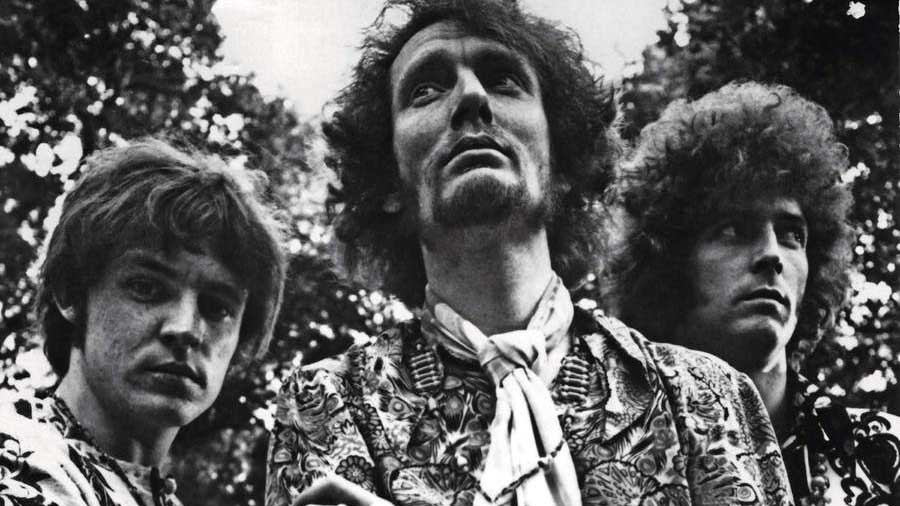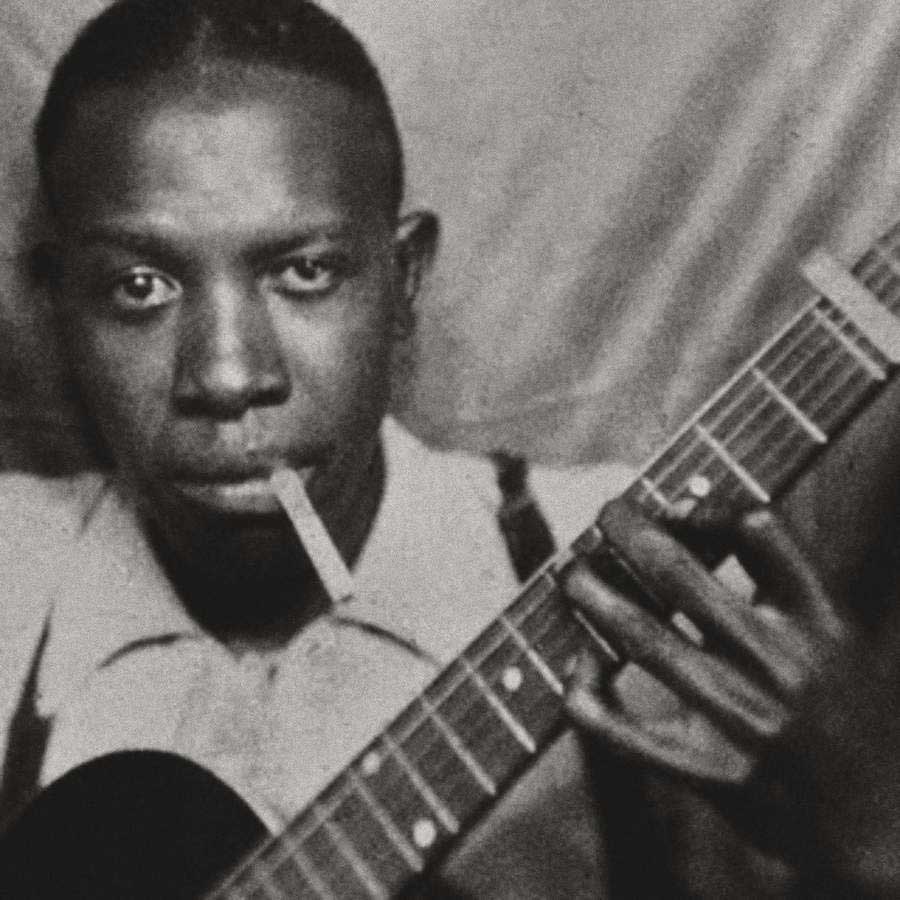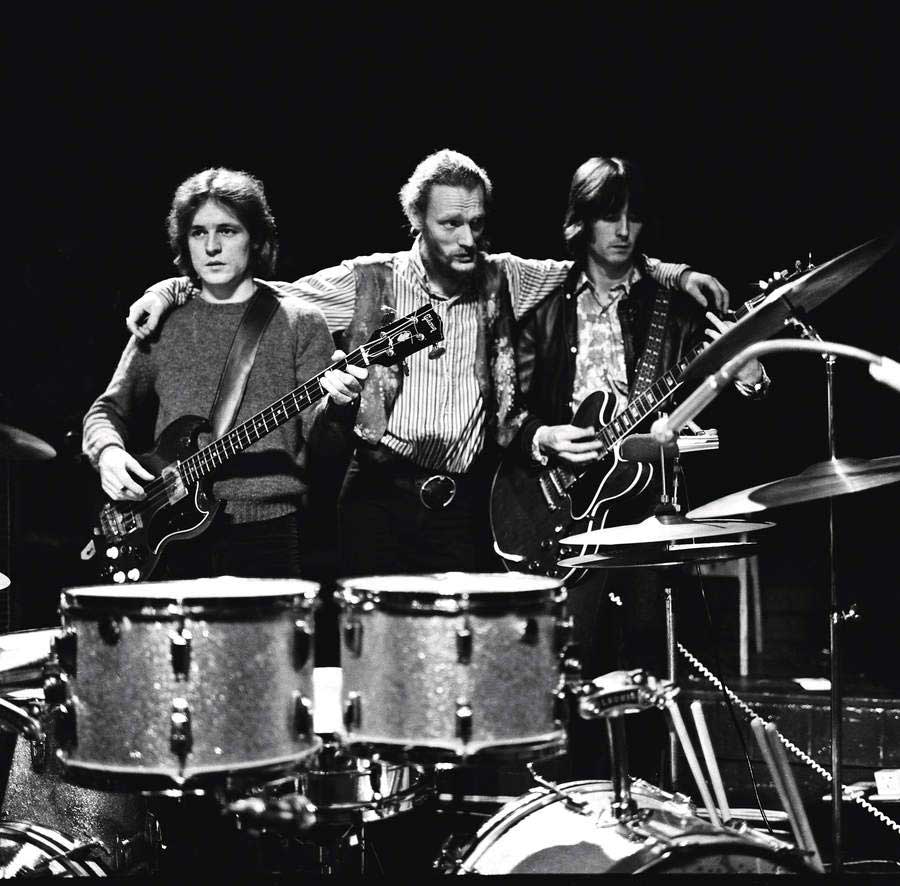How Cream and Eric Clapton delivered four minutes of magic and the Holy Grail of guitar solos
On March 10, 1968 at Winterland in San Francisco, Cream covered a Robert Johnson song. Today it is seen as one of the most significant four minutes of live rock ever recorded

Select the newsletters you’d like to receive. Then, add your email to sign up.
You are now subscribed
Your newsletter sign-up was successful
Want to add more newsletters?

Every Friday
Louder
Louder’s weekly newsletter is jam-packed with the team’s personal highlights from the last seven days, including features, breaking news, reviews and tons of juicy exclusives from the world of alternative music.

Every Friday
Classic Rock
The Classic Rock newsletter is an essential read for the discerning rock fan. Every week we bring you the news, reviews and the very best features and interviews from our extensive archive. Written by rock fans for rock fans.

Every Friday
Metal Hammer
For the last four decades Metal Hammer has been the world’s greatest metal magazine. Created by metalheads for metalheads, ‘Hammer takes you behind the scenes, closer to the action, and nearer to the bands that you love the most.

Every Friday
Prog
The Prog newsletter brings you the very best of Prog Magazine and our website, every Friday. We'll deliver you the very latest news from the Prog universe, informative features and archive material from Prog’s impressive vault.
“Eric Clapton, please, on vocals.”
So ends the definitive live recording of Crossroads, signed off with a terse acknowledgement by Jack Bruce, bass player and primary singer with Cream, to a rising tide of applause.
To the band it may well have been just another rendition of a song that had been in their live repertoire since their very first gig. But today that live version is recognised as one of the most magnificent live performances in the history of rock, an astonishing piece of collective, semi-improvised genius by Clapton, Bruce and drummer Ginger Baker, captured for posterity like the proverbial lightning in a bottle.
More than that, it was a moment of symbolic significance, a grandstanding performance of a song that linked the Young Turks of the rock revolution to the deepest elements of the blues storytelling tradition upon which the edifice of modern popular music was then being built.

Written and recorded as Cross Road Blues by Robert Johnson in 1937, the song springs from the essence of the Mississippi Delta blues tradition – a despairing, haunted lament, which acquired an occult dimension after Johnson died suddenly of a mysterious sickness the following year at the age of 27.
Retooled and reimagined by Cream, Cross Road Blues/Crossroads has now achieved a longevity in the popular imagination that few songs in any genre can claim. Surprisingly, Clapton doesn’t have any great fondness for his own, most celebrated version of the song.
“I actually have about zero tolerance for most of my old material, especially Crossroads,” he told MusicRadar in 2004. “The popularity of that song with Cream has always been mystifying to me. I don’t think it’s very good. I’m convinced that I get on the wrong beat in the middle of the song, which often happened with Cream.
Sign up below to get the latest from Classic Rock, plus exclusive special offers, direct to your inbox!
"It drives me crazy that there’s this performance of me floating around where I’m supposed to be on the ‘one’, where really I’m on the ‘two’. So I never really revisit my old stuff. I won’t even go there.”
Clapton’s appraisal is in stark contrast to those of his and Cream’s fans, both then and now, not to mention the many guitarists and music scholars who regard Crossroads (the version on Cream’s Wheels Of Fire album) as the Holy Grail of rock guitar solos and have studied the performance with an appropriately religious zeal.
It is a moment in which three virtuoso It is a moment in which three virtuoso musicians are captured working in a super-rarefied zone. The structure of the song is generally agreed. They have played it numerous times before and know what to expect. But they are all free to improvise their parts within the given framework. Bruce’s bass line is a complementary solo in itself; thick, fast and insanely syncopated as it charges through the song astride the tumultuous thrust of Baker’s comparatively straight-ahead drum pattern.
Clapton, meanwhile, applies himself to a guitar solo, spread over five verses, that is an instant masterpiece of design and execution, no matter what he now says about it. His pioneering use of Gibson guitars through a Marshall stack, produces a full, keening sound that has rarely been bettered. His phrasing, timing and choice of notes are simply sublime as he starts in a low register and gradually climbs over two verses building tension and excitement.
After another verse of vocals (‘Going down to Rosedale…’) he comes back in for a second stretch of solos, leaping from where he left off and doubling the intensity in all departments for another three verses. Never repeating himself or losing his way through the intense three-way wrestling match that is going on between the guitar, bass and drums, he pulls out a gradually intensifying succession of wild, soaring blues licks and double-stop bends that are wild and super-aggressive but focused.
As if that wasn’t enough, Crossroads was also one of the few occasions when he was with Cream that Clapton owned the lead vocal – hence Bruce’s acknowledgement at the end of the song. Accustomed to being hailed as ‘God’ when it came to his status as a guitarist, Clapton found taking the lead vocal of aRobert Johnson song a more significant challenge at this point in his career than merely banging out another solo, even one of such undiluted genius as this.
Johnson’s Cross Road Blues has been interpreted as the autobiographical story of how he supposedly sold his soul to the devil. The tale derived from an old fable among the blues community in the South about a musician who took his guitar down to the crossroads at midnight to be greeted by a satanic stranger who tuned the instrument and thereby conferred expertise and good fortune on the performer – in return for ownership of his soul.
The story fitted in with what was known of Johnson’s apparently swift development as a guitarist, and the lyrics of several of his songs – Hellhound On My Trail, Me And The Devil Blues and others – referenced chilling encounters with the stealer of souls which further bolstered the mythology. Johnson then pulled the ultimate career move by dying young, apparently poisoned by a jealous love rival.
Besides establishing him as a founder member of the ‘27 club’, his grisly demise was taken as final confirmation that the devil had indeed claimed his due. Clapton had been a disciple of Johnson’s for many years, and for him to inhabit the words and the world of Crossroads was no small thing.
“When I was younger… the idea that he was really singing about being pursued by demons was too much for me. For a while I really couldn’t deal with it,” he said. “Then I began thinking of it as a metaphor for trouble. I believe in the presence of evil. I think it’s possible to conceive of something so bad that it can lead into a whole other world – a world where there is little hope. And I think that’s what he was going after. And when he sang about the crossroads… the crossroads is about choosing which path to go down. It’s about the moral decisions you make every day.”

Clapton makes a good point. For all the subsequent talk of deals with the devil, the only reference to any supernatural being in the actual lyric itself is, in fact, to God: ‘Asked the Lord above for mercy/Save me if you please’.
Cream’s transcendent version of Crossroads was recorded on March 10, 1968 at the 5,400-capacity Winterland Ballroom in San Francisco, and was first presented to the wider world as the opening track on the live disc of the double album Wheels Of Fire, released on August 9 of that year in the UK (June 14 in the US).
Compared to the other live tracks on that album – long, winding, epic renditions of Spoonful, Traintime and Toad – Crossroads is a lean, concise four-minute statement, punched out with supreme authority and a surprising economy of effort by three of the defining musicians of the rock era.
Ironically, it was around this time that Clapton underwent a sudden epiphany, prompted by a negative review of a Cream show in Rolling Stone magazine by Jon Landau, who described the band as “three virtuosos romping through their bag… always in a one-dimensional style” and Clapton as “a master of the blues clichés of all of the post-World War II blues guitarists”.
“And it was true!” Clapton said later. “The ring of truth just knocked me backward. I was in a restaurant and I fainted. After I woke up I immediately decided it was the end of the band.”
The long, free-form extemporisations that Cream had pioneered would soon be adopted by a legion of bands such as Mountain, Humble Pie, Canned Heat and many others. But, having set the heavy-jamming ball rolling, Cream were now headed for the exit. The trio played their farewell show at the Albert Hall in London on November 26, 1968, just three months after the release of Wheels Of Fire.

Apart from a brief diversion with Blind Faith, Clapton spent the next 20 years or more disavowing his status as a guitar hero and taking great care to avoid the high-volume histrionics that had once been his stock-in-trade. But whatever his feelings about Cream’s Wheels Of Fire version of Crossroads, he has never stopped playing the song in his own live shows, albeit in a considerably more restrained and leisurely manner than he ever did with Cream.
And the song’s title has become a recurring motif throughout his career, lending its branding cachet to a boxed-set retrospective released in 1988; to the drug rehabilitation facility Clapton set up in Antigua in 1998 (the Crossroads Centre); and to the Crossroads Guitar Festivals curated by Clapton at various US locations between 1999 and 2019.
Today, at the junction of Highway 61 and Highway 49 in Clarksdale, Mississippi (“birthplace of the blues”, according to the town’s Delta Blues Museum) there is a giant model of three guitars erected above an inscription which says simply: ‘The Crossroads’. Whether or not this is the exact location of the crossroads referenced in Johnson’s song is open to question. But in any event, the power of the legend and Cream’s almighty version of the song most assuredly lives on.
Musician since the 1970s and music writer since the 1980s. Pop and rock correspondent of The Times of London (1985-2015) and columnist in Rolling Stone and Billboard magazines. Contributor to Q magazine, Kerrang!, Mojo, The Guardian, The Independent, The Telegraph, et al. Formerly drummer in TV Smith’s Explorers, London Zoo, Laughing Sam’s Dice and others. Currently singer, songwriter and guitarist with the David Sinclair Four (DS4). His sixth album as bandleader, Apropos Blues, is released 2 September 2022 on Critical Discs/Proper.

